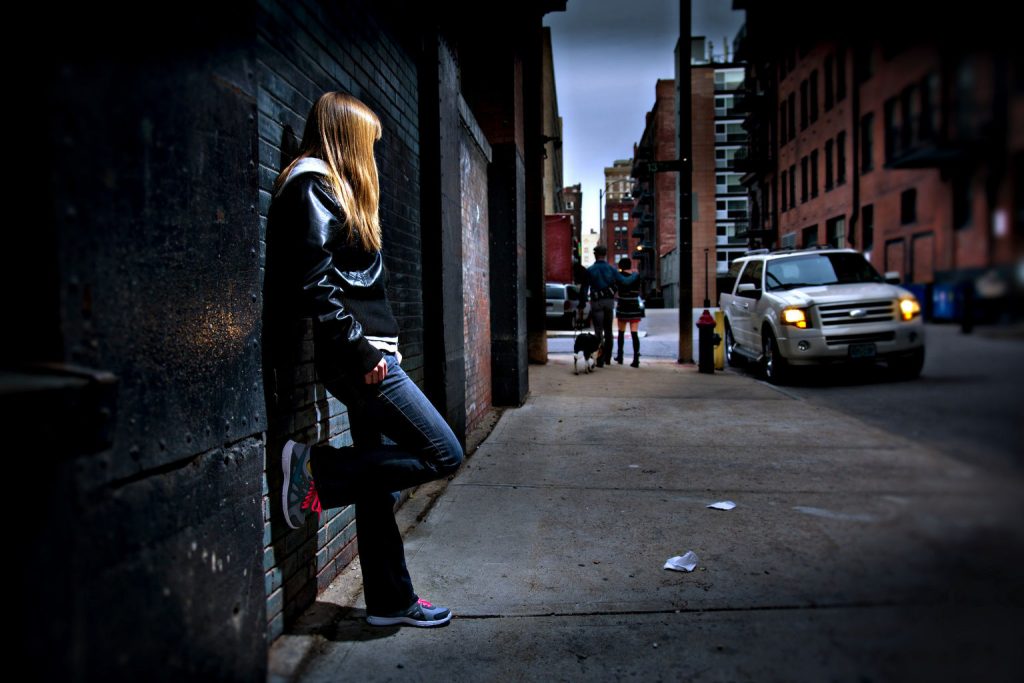Sex trafficking has been called a form of modern day slavery, one that supports a multimillion-dollar industry at the expense of victims. The majority of those victims are women and underage.
“The most vulnerable to become victims of trafficking tend to be those who feel desperate and see taking this risk as the only way to survive,” said Ana Nogales, a psychologist and author who founded and directs the clinic “Casa de la Familia,” a nonprofit that serves those who have suffered violence.
“When, for example, a work opportunity seems too be good to be true, don’t trust it. Investigate it. Inform yourself. Don’t give strangers your personal information. Don’t give that information away through Facebook either. Don’t speak about your family in a work interview. Don’t hurry your decision. A slower step can help you save your life,” she said.
“There are many people who fall into a traffickers grasp because they think that, on this side of the border, everything is easier and possible,” Nogales said.
“Those who were drugged and sexually exploited are more affected. They develop post traumatic stress disorder — that is to say, an emotional trauma that will be with them for the rest of their lives,” according to Nogales. Reoccurring memories during which victims relive their experience are one of several symptoms of PTSD. So too are nightmares and paralyzing thoughts that interfere with daily affairs.
Victims also avoid certain places or objects that remind them of the traumatic event. A victim may also experience guilt, depression, anxiousness and stress. They may also have feelings of disassociation and feel the world is not real.
Victims will often survey their surroundings for signs of danger and will have a difficult time concentrating. They experience irritability or react angrily to situations that remind them of incidents and often feel they have an uncertain future. They experience dizziness, have palpitations and headaches and other physical maladies.
Can one heal?
“Some believe it’s enough to forget and so that’s what they try to do. But forgetting is not possible … those traumas cannot be forgotten once they are lived,” according to Nogales. “As such, like in any other medical condition, psychological treatment is essential to alleviate the effects and oftentimes medication is necessary to help sleep.”
Such medication takes time and it’s important to educate oneself about possible side effects.
“Anyone who has suffered through this kind of tragedy needs psychological treatment for a period of time until they feel they have retaken control of their lives,” Nogales added.
Support groups can help. While they are not a substitute for treatment, they can complement the healing process.
“It’s difficult for victims to know in whom to trust. But it is necessary to find those confidential resources and to allow oneself a respite from that hell. Victims should be careful in whom they trust. They can go to a church for refuge while they make the police report. The authorities are trained in how to intervene efficiently and how to help. Something better is in store. There is hope,” Nogales said.
Joining forces with the Church
“The Catholic Church knows what happens in our communities and we all need to intervene — not only to assist victims, but also to fight this crime so that people stop suffering,” Nogales said. “We need more information to prevent victims from falling prey to traffickers. That can only happen if we’re paying attention and we respond to the call.”
Nogales’ “Casa de la Familia” (House of the Family) and “Grupo Nuevo Amanecer Mujer Integral” (New Awakening Comprehensive Women’s Group) work together to support victims of violence. On Sept. 19, the organizations began offering free workshops and support at parishes throughout Los Angeles. The offerings, based on Nogales’ book, “Amor sin violencia,” (“Love without violence”), is coordinated by Sister Trinidad López, who founded the women’s group.
The collaboration will bring counselors to head support groups Monday through Friday, in the morning and in the evening. These sessions will detail how to prevent, confront and overcome violence, including domestic violence. Classes will be offered over 12 sessions and are open to all. For more information, call Sandra Peña, (323) 490-6451.
For a more in-depth look at human trafficking in Los Angeles County read theseaccompanying articles:

